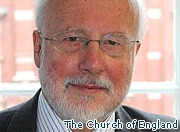Church of England bishops met on Monday to reflect on a report which recommended marking same-sex relationships in special church services.
The discussions on the Pilling report, which is the result of a review of Church teaching on human sexuality by a panel of bishops chaired by Sir Joseph Pilling, were the start of a two-year process of “facilitated conversations” about the issue.
A statement following Monday’s meeting of 90 bishops said, “We recognise that we will not all agree and that this process is in part committed to seeking good disagreement”.
Criticism
The 224-page report being discussed was released last November – it received heavy criticism from evangelicals.
The Church of England Evangelical Council (CEEC) said the recommendation that gay unions should be marked by special church services as an act of worship was a “surface sign that there are deeper and more serious flaws in the report as a whole”.
But the statement from the bishops said that pastoral and liturgical practice “remains unchanged” despite the recommendations, because the Pilling report is not a policy statement.
Marriage
It also said: “No change to the Church of England’s teaching on marriage is proposed or envisaged”.
The bishops said they recognise the “very significant change in social attitudes to sexuality” in the UK in recent years, but accept the “strongly held and divergent views” within the Church of England.
They also said the subject of sexuality would be “best addressed by facilitated conversations” at a national and local level.
Label
The Pilling report calls for the Church to repent for its failure to tackle “homophobia”, but warns against using the word to label people who disagree with homosexual conduct.
Vicar and blogger Peter Ould said at the time of the report’s release that by permitting church services to affirm sexual relationships outside of marriage, “the Church of England is effectively abandoning those of us who have struggled to follow traditional Christian practice and telling us that we have made the wrong choice”.

